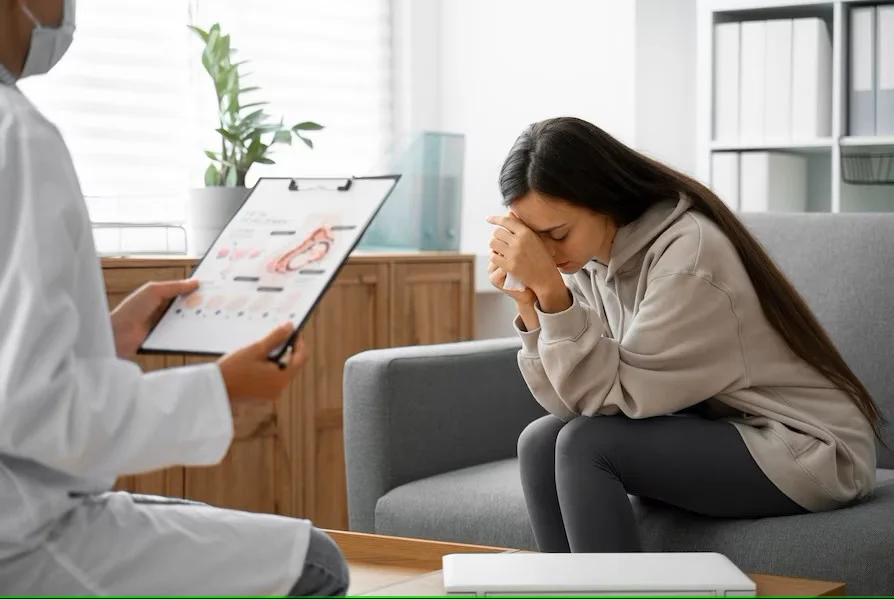
Comprehensive Guide to Depression Treatment in San Antonio
Depression is a common and serious mental health condition that affects millions of people worldwide. In San Antonio, a city renowned for its rich cultural diversity and strong community spirit, there are numerous resources available for those seeking help with depression. This guide will explore various depression treatment in San Antonio and highlight the importance of seeking professional help, and provide insights into managing and overcoming depression.
Understanding Depression
Depression is more than just feeling sad or going through a rough patch; it is a medical condition that affects mood, behavior, and physical health. Symptoms of depression can include persistent sadness, loss of interest in activities, changes in appetite or weight, difficulty sleeping, fatigue, feelings of worthlessness or guilt, difficulty concentrating, and thoughts of death or suicide.
Importance of Seeking Professional Help
Depression is a treatable condition, but it requires professional intervention. Seeking help from a healthcare provider is crucial because untreated depression can lead to severe consequences, including worsening mental health, physical health problems, and an increased risk of suicide.
Types of Depression Treatments Available in San Antonio
-
Psychotherapy
- Cognitive Behavioral Therapy (CBT): A widely used therapeutic approach that helps individuals identify and change negative thought patterns and behaviors.
- Interpersonal Therapy (IPT): Focuses on improving interpersonal relationships and communication patterns that may contribute to depression.
- Dialectical Behavior Therapy (DBT): Combines cognitive behavioral therapy techniques with mindfulness strategies to manage emotions and reduce self-destructive behaviors.
- Psychodynamic Therapy: Explores unconscious processes and how past experiences influence current behavior and emotions.
-
Medication
- Antidepressants: Commonly prescribed medications such as SSRIs, SNRIs, and MAOIs that help balance brain chemicals linked to mood regulation.
- Mood Stabilizers: Used for individuals with mood disorders that include depressive episodes.
- Antipsychotics: Sometimes prescribed in combination with antidepressants for severe depression or depression with psychotic features.
-
Lifestyle and Wellness Approaches
- Exercise: Regular physical activity has been shown to improve mood and reduce symptoms of depression.
- Nutrition: A balanced diet can support overall mental health.
- Sleep Hygiene: Establishing a regular sleep routine is essential for mental well-being.
- Mindfulness and Meditation: Practices that promote relaxation and stress reduction.
-
Alternative and Complementary Therapies
- Acupuncture: Some studies suggest acupuncture can help alleviate depression symptoms.
- Herbal Supplements: St. John’s Wort and other supplements have been used for mild depression, but it’s important to consult with a healthcare provider before use.
- Art and Music Therapy: Creative therapies that provide emotional expression and stress relief.
-
Support Groups and Peer Support
- Support Groups: Joining a support group can provide a sense of community and understanding among individuals facing similar challenges.
- Peer Support: Engaging with peers who have lived experience with depression can offer practical advice and emotional support.
-
Inpatient and Outpatient Programs
- Inpatient Treatment: Intensive care for severe depression requiring hospitalization.
- Outpatient Programs: Structured programs that offer therapy and support while allowing individuals to live at home.
Finding the Right Treatment Provider in San Antonio
- Primary Care Physicians: Often the first point of contact for individuals seeking help. They can provide initial assessments, prescribe medications, and refer patients to specialists.
- Psychiatrists: Medical doctors specializing in mental health who can diagnose conditions, prescribe medications, and offer therapy.
- Psychologists: Licensed professionals who provide therapy and conduct psychological assessments.
- Licensed Therapists and Counselors: Include clinical social workers, marriage and family therapists, and professional counselors who offer various therapeutic approaches.
- Community Mental Health Centers: Provide affordable mental health services, including therapy and medication management.
- University Counseling Centers: Offer services to students and sometimes the general public, often at reduced rates.
Steps to Access Depression Treatment in San Antonio
- Recognize the Need for Help: Acknowledge symptoms and understand that seeking help is a sign of strength.
- Consult a Healthcare Provider: Start with a primary care physician or mental health professional to discuss symptoms and treatment options.
- Explore Treatment Options: Work with your healthcare provider to determine the best treatment plan tailored to your needs.
- Utilize Community Resources: Take advantage of local support groups, community health centers, and hotlines.
- Follow Through with Treatment: Adhere to prescribed treatments, attend therapy sessions, and make lifestyle changes as recommended.
Community Resources in San Antonio
- Mental Health Hotlines: Available for immediate support and crisis intervention.
- Non-Profit Organizations: Many organizations provide free or low-cost mental health services.
- Local Hospitals and Clinics: Offer a range of mental health services, including emergency care.
- Online Therapy Platforms: Provide convenient access to therapy from the comfort of your home.
Tips for Managing Depression
- Stay Active: Engage in regular physical activity.
- Maintain a Healthy Diet: Eat balanced meals and stay hydrated.
- Establish a Routine: Create a daily schedule to provide structure.
- Seek Social Support: Connect with friends, family, or support groups.
- Practice Self-Care: Engage in activities that promote relaxation and joy.
- Set Realistic Goals: Break tasks into manageable steps and celebrate small achievements.
- Avoid Alcohol and Drugs: These can worsen depression symptoms.
- Stay Informed: Educate yourself about depression and treatment options.
Conclusion
Depression treatment in San Antonio encompasses a wide range of options tailored to meet individual needs. Whether through therapy, medication, lifestyle changes, or support groups, there are numerous avenues to explore for managing and overcoming depression. The key is to seek help, stay committed to your treatment plan, and take advantage of the resources available in this vibrant and supportive community. Remember, depression is treatable, and with the right support and treatment, you can regain control of your life and well-being.
FAQs
1. What are the common symptoms of depression?
Answer: Common symptoms of depression include persistent sadness, loss of interest in activities once enjoyed, changes in appetite or weight, difficulty sleeping or oversleeping, fatigue, feelings of worthlessness or guilt, difficulty concentrating, and thoughts of death or suicide.
2. How can I find a depression treatment provider in San Antonio?
Answer: You can find a depression treatment provider by:
Consulting your primary care physician for a referral.
Searching online directories for local mental health professionals.
Contacting community mental health centers.
Asking for recommendations from friends, family, or support groups.
Using insurance provider directories to find in-network therapists or psychiatrists.
3. What types of therapy are available for depression treatment in San Antonio?
Answer: Common types of therapy available include:
Cognitive Behavioral Therapy (CBT)
Interpersonal Therapy (IPT)
Dialectical Behavior Therapy (DBT)
Psychodynamic Therapy
Group Therapy
4. Are there medication options for treating depression?
Answer: Yes, several types of medications can treat depression, including:
Selective Serotonin Reuptake Inhibitors (SSRIs)
Serotonin and Norepinephrine Reuptake Inhibitors (SNRIs)
Tricyclic Antidepressants (TCAs)
Monoamine Oxidase Inhibitors (MAOIs)
Atypical Antidepressants
5. Are there alternative treatments for depression in San Antonio?
Answer: Yes, alternative treatments include:
Acupuncture
Herbal Supplements (such as St. John’s Wort, though it’s important to consult with a healthcare provider)
Art and Music Therapy
Mindfulness and Meditation
Exercise Programs
6. What should I expect during my first therapy session?
Answer: During your first therapy session, you can expect:
An initial assessment of your symptoms and medical history.
Discussion of your current challenges and goals for treatment.
Development of a treatment plan tailored to your needs.
Establishment of a comfortable and confidential space to share your experiences.
7. How long does depression treatment typically take?
Answer: The duration of depression treatment varies depending on the individual and the severity of the condition. Some people may feel better in a few weeks or months, while others may require longer-term treatment. Consistency and following your treatment plan are key to recovery.
8. Can lifestyle changes help manage depression?
Answer: Yes, lifestyle changes can significantly help manage depression, including:
Regular exercise
Healthy diet
Adequate sleep
Stress reduction techniques
Social engagement and support
9. Are there support groups for depression in San Antonio?
Answer: Yes, there are numerous support groups for depression in San Antonio, which can be found through:
Local mental health organizations
Community centers
Online directories
Hospitals and clinics
Non-profit organizations
11. How can I support a loved one who is undergoing depression treatment?
Answer: To support a loved one:
Encourage them to follow their treatment plan.
Offer a listening ear and emotional support.
Help them with daily tasks if they are struggling.
Encourage healthy lifestyle choices.
Be patient and understanding of their condition.
12. Are there financial assistance options for depression treatment in San Antonio?
Answer: Yes, financial assistance options may include:
Sliding scale fees at community mental health centers.
Non-profit organizations offering low-cost or free services.
Financial aid programs at local hospitals or clinics.
Insurance coverage for mental health services.
Payment plans or financial assistance programs through individual providers.
13. Can children and adolescents receive depression treatment in San Antonio?
Answer: Yes, children and adolescents can receive depression treatment from specialists in pediatric and adolescent mental health, including child psychologists, psychiatrists, and counselors who tailor treatment to younger patients.
14. What role does medication play in treating depression?
Answer: Medication can help balance brain chemicals that affect mood and is often used in combination with therapy. It can be particularly effective for moderate to severe depression. A healthcare provider will determine the appropriate medication based on individual needs.
15. What are the signs that I should seek professional help for depression?
Answer: Signs that you should seek professional help include:
Persistent sadness or hopelessness.
Loss of interest in activities you once enjoyed.
Significant changes in appetite or weight.
Sleep disturbances.
Fatigue or lack of energy.
Difficulty concentrating.
Thoughts of death or suicide.


